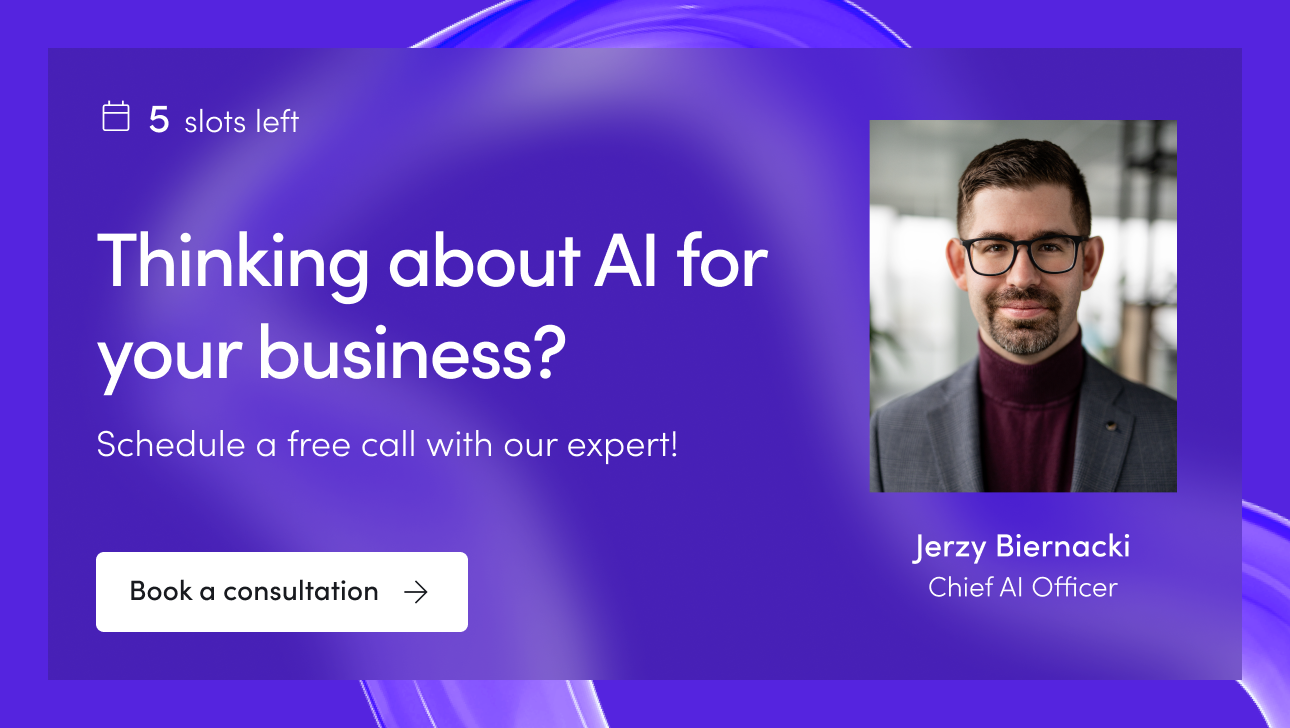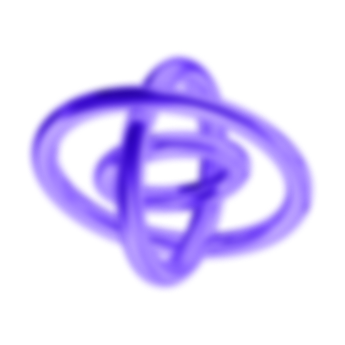Coordinating schedules across teams, clients, and time zones can be a logistical headache. Manual scheduling often results in errors, miscommunication, and time wasted on back-and-forth emails. An AI scheduling assistant, or ai scheduling app, removes this friction by automating the scheduling process, setting up appointments seamlessly, and optimizing timing for all parties, thereby streamlining time management and improving productivity.
With generative AI, these scheduling assistants handle everything from managing calendars to setting up appointments, sending reminders, and handling rescheduling. By reducing manual effort, an ai scheduling tool saves time and improves coordination, keeping teams organized and focused on what matters. The automatic scheduling feature simplifies the management of time and tasks, reducing the stress of organizing meetings and maintaining productivity.
Miquido’s AI Kickstarter framework is an ideal foundation for developing an AI scheduling assistant. Built with support for top language models like GPT, Mistral, and Claude, AI Kickstarter enables the assistant to interpret natural language requests – like finding the best times across time zones or rescheduling. Its Retrieval-Augmented Generation architecture, paired with conversational AI, allows the assistant to access and update real-time calendar data accurately, delivering context-aware responses and ensuring smooth meeting scheduling adjustments.
Who it’s for:
- Corporate teams who manage internal and external meetings frequently.
- Customer service representatives responsible for booking appointments and consultations.
- HR professionals who coordinate interviews and meetings with candidates and departments.
- Sales team needing quick, efficient ways to schedule meetings with potential clients.
- Freelancers and consultants who juggle multiple clients and projects across different time zones.
Common issues in existing scheduling software solutions
- Time-consuming coordination: Traditional scheduling tools often require back-and-forth emails or calls to find a suitable time, making the process inefficient and frustrating compared to AI-powered options that automate scheduling and save time.
- Manual errors: Mistakes in entering dates, times, or participant details can lead to missed meetings, double bookings, or scheduling conflicts.
- Limited availability visibility: Stakeholders may not have real-time access to each other’s availability, which frequently results in conflicts or delays in finding a common time.
- Inflexibility: Standard calendar systems lack adaptability, requiring manual adjustments for schedule changes, which can be time-consuming and cumbersome.
- Time zone confusion: Coordinating across different time zones can lead to misunderstandings and miscommunications, causing participants to miss meetings or join at the wrong time.
- Lack of comprehensive features: Traditional systems fail to integrate comprehensive task management features, making it difficult to streamline workflows, prioritize tasks, and enhance efficiency in managing daily responsibilities.
How AI scheduling assistant software can solve these problems with automatic scheduling
AI scheduling assistants can make the scheduling process faster, more accurate, and adaptable, resolving common issues in traditional scheduling and creating a seamless experience for all participants.
- Efficient coordination: AI scheduling assistants automate the process of finding the best meeting time, eliminating the need for extensive coordination and saving time. They also help create dedicated periods of focus time, free from interruptions.
- Error reduction: By automating scheduling and data entry, AI minimizes the chance of human errors that can disrupt meetings.
- Real-time availability: AI-based tools provide up-to-date visibility into participants’ availability, making it easy to avoid conflicts and set meetings that suit everyone.
- Dynamic rescheduling: AI can quickly suggest alternative times when conflicts arise, adapting to last-minute changes effortlessly.
- Time zone management: AI tools automatically adjust meeting times to each participant’s time zone, ensuring accurate scheduling and preventing confusion. Additionally, integration with Google Calendar enhances the ability to manage both personal and professional schedules seamlessly.
- Scheduling meetings: AI tools simplify and optimize the process of finding suitable time slots for meetings, minimizing the hassle of coordinating across different schedules.

Key benefits of the AI scheduling assistant solution
- Enhanced understanding of nuanced requests: With Generative AI and Natural Language Processing, the AI personal assistant can interpret nuanced user requests, such as casual language and specific preferences. This precise understanding ensures the assistant schedules meetings that truly align with the user’s needs, including the automation of scheduling appointments.
- Increased efficiency with contextual insights: The AI scheduling assistant learns from prior interactions, such as preferred meeting times, days, or time slots to avoid. By using these contextual insights, it can suggest times that match user habits and preferences, reducing the need for manual adjustments and minimizing the likelihood of rescheduling.
- Real-time adaptability: The AI assistant can respond instantly to changes, such as new scheduling conflicts, and intelligently suggests alternative times. This adaptability helps users adjust swiftly to last-minute changes, saving time and reducing productivity disruptions without the need for back-and-forth communications. Additionally, it adapts to changes in task priorities to optimize scheduling, ensuring users stay focused and organized throughout the day.
Solution features for task management
- NLP with contextual comprehension: Using advanced NLG, the scheduling assistant can parse informal and formal language alike. Phrases like “a quick chat” or “let’s catch up this week” are interpreted with precision, leading to accurate, context-aware scheduling.
- Preference learning and personalization: The assistant can learn from each user interaction, gradually building a profile of user preferences, meeting patterns, and availability trends. This personalized approach means that over time, scheduling becomes increasingly aligned with user habits and requirements.
- Automated rescheduling and conflict management: When conflicts or cancellations arise, the assistant can proactively suggest alternatives based on past preferences and priorities. This feature can minimize disruption and eliminates the need for users to intervene manually, providing a smooth, automated meeting scheduling.
- Omni-channel accessibility: Accessible across multiple channels – web, mobile, and messaging platforms – the AI assistant can integrate seamlessly with the user’s preferred environment, including managing multiple calendar accounts for a unified view of all the tasks and events.
- Built-in guardrails: Security protocols ensure all personal data, meeting details, and communications are handled with top-tier protection. Guardrails safeguard against inappropriate bookings or double bookings, ensuring every scheduled interaction is safe and confidential.
AI scheduling assistant: a case study
A time management startup partnered with Miquido to create an AI-powered scheduling bot that integrates seamlessly with user calendars. Developed using Miquido’s AI Kickstarter framework, this bot analyzes users’ free time slots and offers personalized activity suggestions based on individual preferences, available time, and goals. With real-time data analysis and instant calendar updates, the bot proactively enhances productivity and user satisfaction by providing tailored recommendations that keep users engaged and motivated.
Cost structure for multiple calendar accounts
The AI scheduling assistant, built with the AI Kickstarter framework, requires a one-time development investment that includes customizations for specific workflows, data integrations, and features like NLP, real-time rescheduling, and preference learning. Optional add-ons – such as enhanced analytics, integration with new platforms, or further personalization – are available as needed.
ROI
The AI scheduling assistant provides a high return on investment by:
- Increasing operational efficiency: Automates scheduling tasks using an ai scheduling tool, reducing the time employees spend on coordination and follow-up.
- Enhancing user and client satisfaction: The assistant’s intelligent scheduling, adaptability, and context-aware responses significantly improve user experiences and reduce frustration.
- Reducing scheduling conflicts and errors: Scheduling tools, particularly AI-powered ones, ensure fewer disruptions and rescheduling due to their smart conflict detection and real-time adaptability, which saves valuable employee time and improves productivity.













